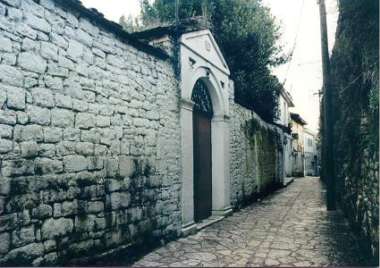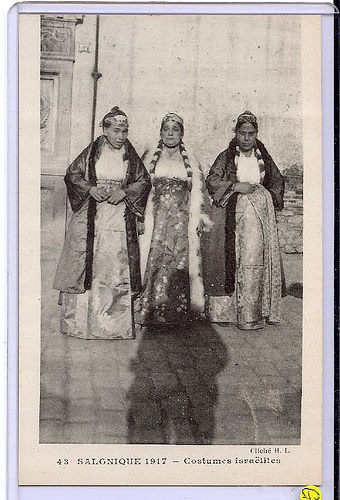I reckon I’ve now received enough emails complaining about my use of “Constantinople” that it’s time to address the issue.
Constantinople – Kwnstantinoupoles — is Istanbul in Greek. It’s the Greek word for Istanbul. Istanbul comes from the word Constantinople. It’s that simple. The way Moscow is the English word for Moskva. The way Parigi is the Italian word for Paris. Constantinople is the Greek word for Istanbul. It’s that simple.
That the Republic chose to change its official name to the time-honored Turkish name of Istanbul in the 1920’s does not obligate speakers of other languages to call it that, especially not those with as heavy an emotional, historical and spiritual investment in their own name for it as we have. Just like the world will hopefully never be obligated to call Greece “Hellas” by the idiots who are attempting to do so. Where Istanbul is concerned, the Ottomans themselves were content, at least for official purposes, with using the Arabic Costantiniyye until very late – till the very end, 1923, if I’m not mistaken. And it took the rest of the world several more decades, as well, to abandon “Constantinople” and conform to the Turkish Republic’s new orders — for those who thought the name just disappeared in 1453.
What exactly is the problem? If readers think I have some nationalist, much less irredentist, reasons for referring to the city as Constantinople, then they haven’t read anything else on this blog, and know nothing about me. If there even is any discernible pattern in my switching back and forth between the two names, it’s not easy to identify. I mostly refer to the city’s Greek community as Constantinopolitan Greeks, usually when I’m talking about a time when there was a community. When the present is involved I usually say something like “Istanbul Greeks.” I call Greeks from Istanbul “Polites” and will often say “Pole,” or even “the City” in English to evoke some sense of its importance to Greeks – and to me. And all sorts of various combinations of the above.
In both print and speech I never hear Turks call Salonica “Thessalonike” but Selanik – except for the occasional overly p.c. Turk who thinks that “Thessalonike” is what I want to hear. And not only does Selanik not annoy me, not only do I not take issue with it or get offended by it, but it moves me. Obviously, when a Turk calls Jiannena — one of my many hometowns – Yanya, it moves me even more. A Turk who says Yanya is asserting his connection to that city, and that assertion becomes an immediate bond between me and him: a bond we both share to its streets, its lake and its mists, its mosques, its churches, its synagogues, its borek, the mahallades my mother used to tell me were Turkish before the twenties, including the one where she grew up, the parks she used to tell me were paved over Muslim cemeteries, that used to scare her as a girl when the region’s interminable rains would expose bones and skulls in their mud — all told with her peculiar sensitivity and strange sadness that would make you think these things were all her own; I never heard a word of ethnic animosity or hatred for anybody out of her mouth — not ethnic or any other kind — and not from my father either.
Yanya: the lake, mosques, the beautiful gate of the Ic Kale, streets, the front gate and interior of the Old Synagogue, 18th c. (The New Synagogue, 19th c., outside the city walls, was blown up by the Nazis.)
And when a Turk says Selanik, he’s asserting his deep historical connection to that city; whether he’s from there or not, he’s using a name which carries all his historical references to that place, which I’m nothing but happy to grant him. I don’t even call it Thessalonike, but ‘Salonike. When I think of Byzantine Thessalonike, of Selanik, Salonico, Salonica, they all evoke for me a great and ancient Mediterranean city; for a long time, the second city of the Byzantines, of St. Gregory Palamas and Nicholas Kabasilas; Salonico makes me think of the heir to the philosophical and poetic heritage of Jewish Spain; the great center of Sephardic learning, both rabbinical and the deep Kabbalistic learning that Jews brought with them from their previous homeland; I think of a Turkish city that was a flourishing center of a variety of Ottoman Sufi orders; the city where so much of Turkey’s new Republican bourgeoisie came from, just as ours came from the other direction.
Frontispiece of a Salonican Zohar, a seminal Kabbalah text, originally written in Leon, Spain.
Salonican Jews
Great caption; “the fanatical sect of Islam” being referred to are the Mevlevis!!!
When I think of modern Thessalonike, on the other hand, I think of an unattractive, humid Balkan town with a serious second-city complex.
But I’m a “manic lover” of St. Demetrius, its patron, so I have to visit every now and then.
Mosaic of St. Demetrius, originally from the church of St. Sophia in Kiev (or is it Kyiv?), currently in the Hermitage Museum, St. Petersburg (or is it Leningrad? or Petrograd? or just the name that everyone who knows her and truly loves her calls her, Peter…)
Funny that it took me so long but I recently realized why I dislike both Salonica and Izmir so much; despite their history, despite Salonica’s plethora of classical and Byzantine monuments even, neither of them — for reasons we all know — feel like organically old cities, the way even Athens does, though in its modern incarnation it’s far newer. They both feel like one city was removed from that location and another one hastily put in its place. Remade. They don’t feel grounded. What you feel in both of them mostly is the absence of history.*
Can you even tell which is which? — except for a few giveaway signs…
With all that said, therefore, I think we have to be very careful about whether it’s the renaming of places or persevering in the old name that represents the more nationalist impulse. I recently confirmed for an Indian friend that, yes, Greeks still refer to Istanbul as “the City,” and he shook his head and mumbled something about the “narcissism of nationalism.” But an increasingly fundamentalist and nationalist India may be the perfect example to start with. Granted, Calcutta was always Kolkata in Bengali. But what was wrong with Madras? And what nationalist Tamil mythology does Chennai justify? The BJP (fundamentalist Hinduism.…you’d think it’d be an oxymoron) in fact, has a list for changing the names of almost all the cities of India to more appropriately Hindu ones, not just obvious targets like Allahabad, but Delhi itself and others: see the list if you’re interested. Aung San Suu Kyi calls her country by its perfectly legitimate name of Burma, yet for a couple of decades we were content to use the name imposed on it by its military dictatorship, Myanmar, and never asked why or by whom it had been changed. The State is not to be questioned. If you said “Burma,” people looked at you like you were uninformed.
The most unfortunate and vulgar change of all is “Mumbai,” but almost no one knows or cares about how that change happened. It was once generally accepted that Bombay comes from the Portuguese “bom bahim,” or good little harbour, just north as it is from Portugal’s long-time colony of Goa. But even if that etymology is bogus, it was under the name Bombay that it flourished and grew under the British into the most important and cosmopolitan city in South Asia.
Bombay (gotta click on this one)
But in 1995, the Shiv Sena party (the Army of Shiva…) won control of the state government of Maharashtra, of which Bombay is a part, though it’s so different in social and ethnic make-up from the rest of that state that it deserves a separate federal district type status like Delhi has, or Mexico City, or D.C. Shiv Sena, being a party whose power base is rural Maharashtra and poor migrant Marathis who feel they deserve more power in the city, is actively hostile to Bombay’s dizzying diversity and especially its large Muslim population. It’s essentially a Marathi branch of the BJP, only worse (and they haven’t been getting along lately): a virulently Hindutva bunch that have not only been found to be involved in Bombay’s drug, prostitution and extortion circles, but ordered and even carried out much of the more vicious anti-Muslim attacks during the Bombay riots of 1992-93: the kerosene-dousing and burning of individuals and the burning tire around the victims’s neck were a couple of their trademarks.
When, despite all that, Shiv Sena were voted into state office in Maharashtra, their response to the poverty, massive infrastructural challenges, crime and destitution of this barely manageable city of more than twenty million was to change its name to Mumbai. This was based on the supposed fact that there was (or is, or if there hadn’t been, I’m sure there now is) a temple of a Marathi goddess of that name on the site before the colonial city rose up, which may or may not be true, but, given the fact that every square yard of India contains at least one shrine or temple to someone or something, doesn’t mean very much.
And yet the whole world fell in line. Thinking that, like Myanmar, if it’s coming from there it must have some sort of indigenous, authentic root, filled with post-colonial guilt and worried about offending what we thought were Indian sensibilities, we all dutifully started calling it Mumbai. Fearing that using the old name would immediately make others imagine us to be jodhpur-clad gin-swillers, we let a bunch of criminal thugs and violent nationalists change the name Bombay — the name by which this great, open-to-the-sea-and-the-world, mercantile, diverse, cosmopolitan, sexy metropolis, a microcosm of India itself and its modern face to the world, was known for almost three centuries – and nobody asked why or breathed a word of resistance.
Bombay — Marine Drive — Queen’s Necklace
So as for C-town, you choose which is more “nationalist.” Calling the city the name by which it was known to most of humanity for more than sixteen centuries? Calling it an also venerable name that the nationalist, anti-cosmopolitan, Turkification project of a military dictatorship whose attitude to the City, its legacy, history and population was actually hostile for much of the time decided the world should call it? Or just calling it both?
Or how ‘bout who cares? As long as we know which city we’re talking about.
* See next post
Comment: nikobakos@gmail.com
























As being a Turk your piece about “Names: “Istanbul (not Constantinople)”…” is exactly reflects my thoughts. I am totally agree with you on this matter and I am OK with calling Istanbul as Constantinople and Al Quddus as Jerusalem. One think I still need to mention. Name “Istanbul” has not been invented in 1920s. Name of Istanbul has 500 years old story. We have written records dated from 15 century which indicates name of the city as Istanbul. Sultan Suleiman ( Magnificient ) always mentioned / called the city as Istanbul in his poets. Majority of the public used the name of Istanbul for centuries. Constantinople – Contantiniyyeh has always been an administrative name and it was not popular among public but on legal papers only.
On the other hand Istanbul is derive form a Greek sentence ” Stin Poli ” which means To/Toward the City (Polis)
Btw I am God Damn enjoying your site. Well done !
Eisai kala Romiotis kai kanis para poli kali doulia edo. Se mpravo !